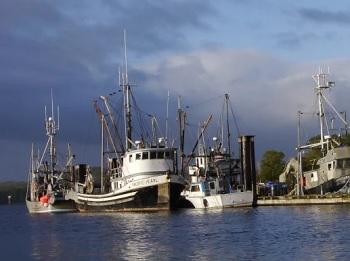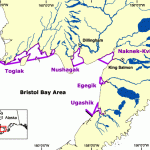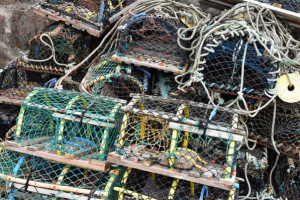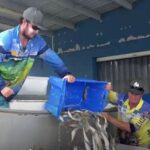Tag Archives: Privatized fisheries

B.C. harvests 196,000 tonnes of fish a year. Most of it is exported and that’s a problem
There are about 4,000 fish harvesters scattered across the province who harvested about 196,000 tonnes of wild seafood in 2018, worth $476 million, everything from salmon to crab to geoducks. Most of that seafood didn’t stay in Canada. The province exports all but about 15 per cent of its annual catch each year and, like most of Canada, imports between 70 and 90 per cent of the seafood British Columbians eat, according to federal data. The licensing policies that give fish harvesters the right to fish the B.C. coast have privatized access to seafood and put them on the open market. >click to read< 07:50
Fishermen happy with their jobs; Don’t like privatized fisheries
 Alaska fishermen are happy with their career choice, but not so pleased with programs that carve up the catch. That pretty much sums up the findings in a multi-year study that aimed to gauge how Kodiak fishermen feel about privatizing the resource through things like catch shares and IFQs. Courtney Carothers, “I was trying to understand also how people thought about privatization compared to other kinds changes in the community and then also looking at how people thought about privatization in terms of its affects on individual and community well being.” Read the rest here 16:31
Alaska fishermen are happy with their career choice, but not so pleased with programs that carve up the catch. That pretty much sums up the findings in a multi-year study that aimed to gauge how Kodiak fishermen feel about privatizing the resource through things like catch shares and IFQs. Courtney Carothers, “I was trying to understand also how people thought about privatization compared to other kinds changes in the community and then also looking at how people thought about privatization in terms of its affects on individual and community well being.” Read the rest here 16:31
Kodiak fishermen share thoughts on privatized fisheries on Alaska Fish Radio
 When posing such a loaded question there is little to no response on privatizing fisheries . Fish Radio did manage to get a few responses from some of Kodiak’s fisherman, but it wasn’t easy. Here’s their thoughts…………..listen @fishradio
When posing such a loaded question there is little to no response on privatizing fisheries . Fish Radio did manage to get a few responses from some of Kodiak’s fisherman, but it wasn’t easy. Here’s their thoughts…………..listen @fishradio
Privatized fisheries are poor public policy – Stephen Taufen
What a week. Apple Inc. was further exposed by the U.S. Senate for its global tax avoidance “economic chutzpah.” Tens of billions go untaxed within any world jurisdiction. Its defenders say it is all legal and claim it would be corporate malpractice not to fleece the world and keep more than $100 billion in “ocean income” away from the United States.
One can’t help but think of how Dutch Harbor and Kodiak fish plant artificialities are largely economic branches of Japan’s multinational corporations, and how they think globally too. continued















































